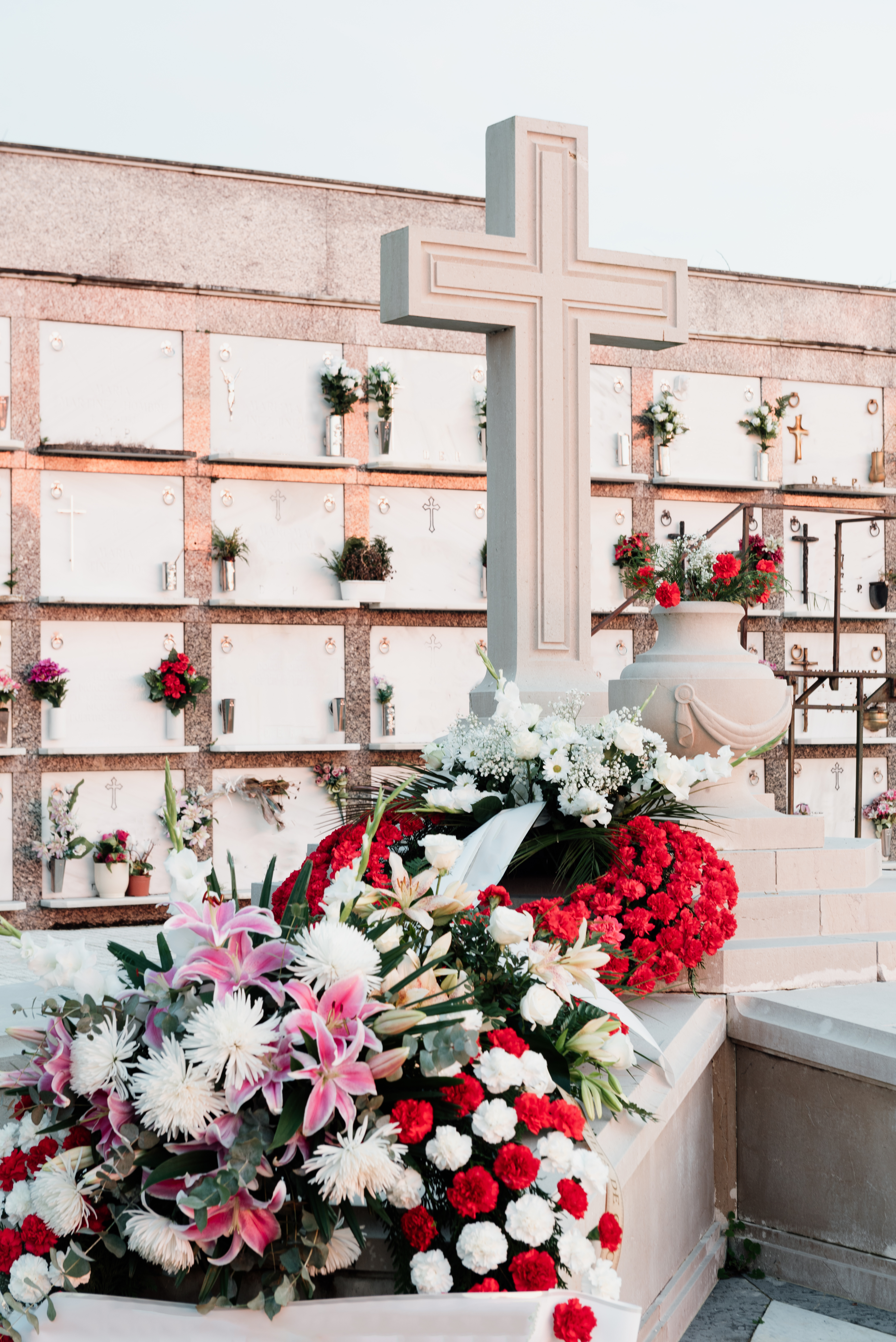
What is the average cost of a funeral? This is a question that many people are asking these days. The cost of funerals has been increasing steadily over the past few years. This seems to be continuing on that trend. In this blog post, we will discuss the average cost of a funeral. As well as some of the factors that contribute to it. We will also talk about some of the options available for those who are looking for affordable funerals.
The Basics
The average funeral costs $7,640. That includes a viewing and burial, embalming, hearse, transfer of remains, service fee, and more. It doesn’t, however, include the cost of the cemetery site, gravestone, or vault. Many cemeteries require this cement container that prevents the ground from caving in. It also doesn’t include, a catered luncheon. This is because that could add hundreds if not thousands to a bill.

Between 2014 and 2019, the median cost of a funeral with viewing and burial increased about 6.4%, from $7,181 to $7,640, according to the National Funeral Directors Association (NFDA). That may not seem so bad, but from 2004 to 2014, the cost spiked by 28.6%.
As of 2019, there were 19,136 funeral homes in the U.S., according to the National Directory of Morticians Redbook (yes, it’s a thing). About 89% of funeral homes are privately owned by families or individuals. There’s a reason why it’s a big industry. Everyone will need a funeral sooner or later.
Burial vs Cremation
As mentioned earlier, according to the NFDA, the median cost of a funeral with viewing and cremation is $5,150. That’s nearly $2,500 less than the median cost of a funeral with a viewing and burial. And some sources put the average cost of cremation even lower, at $2,000-$4,000.
The cost differential between burial and cremation may be part of the reason that cremation rates are rising and burial rates are falling. In 2005, cremation accounted for 32.3% of funerals, and burial for 61.4%. By 2015, cremations were at 47.9% and burials at 45.2%. The NFDA projects the trend to continue in favor of cremations. By 2035, the NFDA projects that cremations will represent close to 75% of funerals and burials only 20%.
How to Save For a Funeral
It’s probably a good idea to budget more than $7,640 (or $5,150 for cremation). Why? Because those numbers don’t include things like traveling for the memorial service, meals, and lodging around the time of the funeral, catering for guests, special clothing, and more.
Most experts recommend rounding up to $10,000, which is why final expense life insurance policies often come with a $10,000 benefit. If you don’t have $10,000 to stash in a money market account to cover the cost of your funeral, you can always buy final expense insurance and name a loved one as the beneficiary of the policy.
That way, he or she won’t be out of pocket $10,000. Having a final expense policy can make it easier for your loved one to get that money. If you had $10,000 in a savings account, it may take your loved one longer to access that money, particularly if he or she is not listed as a beneficiary on your bank account.
Some final expense insurance policies are only available to those 50 or older. So what do you do if you’re under 50 and you don’t want your funeral to be a financial burden to a loved one? You can set up a dedicated savings account and share access to the account with your loved one, or buy a bond for the person who would be responsible for planning your memorial service. In some cases, you can pre-pay for a funeral with a funeral home, but doing this too far in advance can lead to complications if you move or if the funeral home goes out of business.

End of Life Planning
- If thinking about how much the average funeral costs makes you worry about how your survivors will come up with that much cash, it may be time to start saving. If you’re eligible for final expense life insurance, you may opt for that. Because of the low policy benefit, these policies tend to come with low premiums, too. Or, you could buy a bigger term life insurance policy that your beneficiary could use to both pays for your funeral and cover other expenses.
- Consider turning to a insurance advisor for guidance on final expense planning. Finding a qualified insurance advisor doesn’t have to be hard. My United insurance has free tools to match you with up to three insurance advisors who serve your are. If you’re ready to find an advisor who can help you achieve your financial goals, give us a call now.
